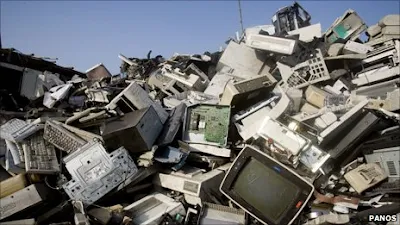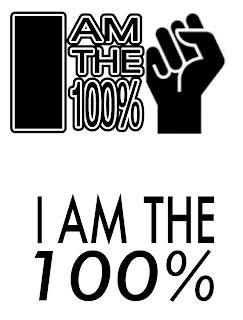 |
| - Victor Lebow, 20th century economist writing on consumer capitalism |
Many are lamenting the short life of some consumer products because it appears that manufactures are only interested in 'make it last - for a while'. What is a person to do? How do we fight back?
In Pyramids of Waste, a worthy documentary recommended by NBA reader Nicole, a man takes his broken printer to several computer shops. Each shop tells him the same, irritating thing - "It could be repaired, but it will cost less to buy a new one."
Welcome to the nightmarish world of planned obsolescence, a wasteful practice popularized at the beginning of the consumer age in the 1950s. By 1960, Vance Packard said it was "the systematic attempt of business to make us wasteful, debt-ridden, permanently discontented individuals."
Its other purpose? To increase corporate profits through having consumers replace products at regular, frequent intervals.
How do you induce consumers to replace products? Either engineer consumer items to self-destruct prematurely, or design newer, shinier, zestier versions so that consumers will replace older models that are 'dated', but perfectly usable.
In the self-destruct category is the infamously fickle computer printer. They are darn near free to buy, astronomically expensive to maintain, and often artificially limited to a set number of prints. Eventually they find their way, illegally, to African and Asian nations for disposal.
In my own brush with 'shortened replacement cycles', a well-meaning friend gave us a brand new computer printer. We never should have let it cross our threshold. The ink cartridges it came with soon did not work, and error messages indicated they needed replacing. We thought that premature, but hey, the thing was actually free.
Of course the replacement ink cartridges cost more than the printer itself - we could see how the scam works. When the new cartridges quit printing far too quickly we cut our losses, raised the Earth flag, and said, "No more!". We gave the printer away, and never replaced it.
On the rare occasion we need to print something we just go to the public library and do it there for fifteen cents a print. Life is short, and we don't need the grief you purchase along with a printer.
Pyramids of Waste, after identifying the problems of planned obsolescence, highlights a few individuals that are doing something about it. There are ways of working around kill switches, and DIYers are re-introducing 'Repair' back into the environmental R's of refuse, reuse, repair, and recycle.
There is also the NBA way, which is avoiding the products altogether, or getting good products to start with, then make them last. Thankfully there were also many comments on the Appliances/Electronics post from readers that are following this approach.
By living without, or by getting quality and making it last, and by learning to repair items, we are beating the 'waste by design' system.
An item isn't 'dated' until it is worn or broken beyond repair, and damn the stainless steel, sleek modern design meant to entice us. We here at NBA are refusing to be made into "wasteful, debt-ridden, permanently discontented individuals."






















